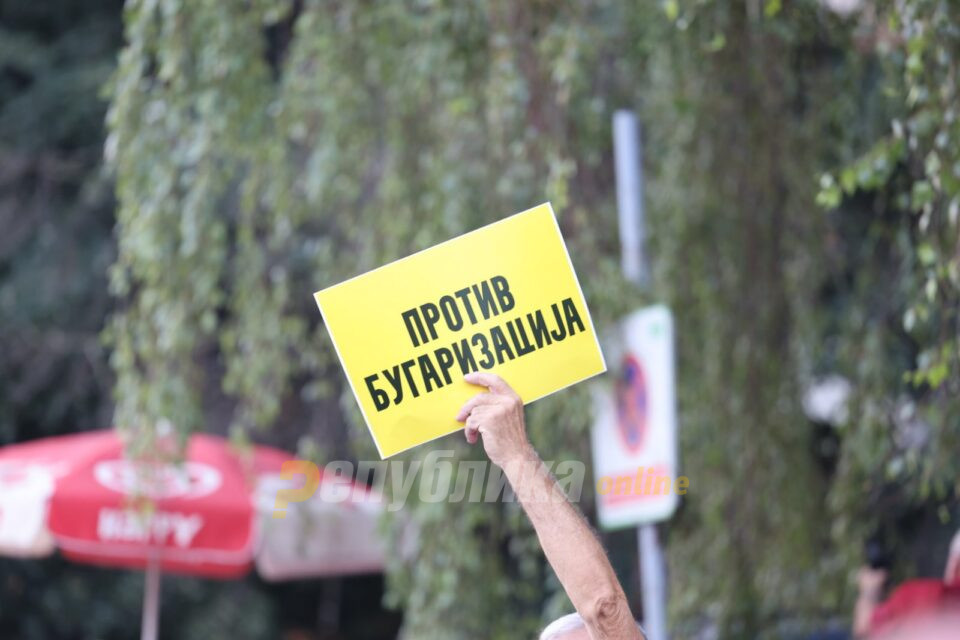At a session of the Executive Committee this afternoon, VMRO-DPMNE will make a decision on the proposal for a referendum question on the package of conditions that became part of the negotiating framework, and reflects the Bulgarian maximalist demands.
The leader of VMRO-DPMNE Hristijan Mickoski opened a process of extensive consultations with the internal organs of the party, several professors and experts in constitutional law, with the academic public and the coalition parties, for which he also received support for the initiative itself.
What is an obstacle for VMRO-DPMNE is Article 5 of the negotiating framework, which relies on the protocol.
This article contains the disputed parts of the Agreement on Friendship, Good Neighborliness and Cooperation between Bulgaria and Macedonia signed in 2017.
Hence, the source and root of the problems lies precisely in this agreement, which lays the foundation for the Bulgarian positions. Later, the negotiating framework and Article 5 emerged from it.
VMRO-DPMNE does not dispute and supports the aspirations to integrate Macedonia into the EU, but what is unacceptable are the Bulgarian demands to change the history, identity, language and culture. That is why the considerations in VMRO-DPMNE, which will be discussed at the session of Executive Committee, are to request a referendum to end the validity of this agreement, which laid the foundations for the Bulgarianization and deprivation of Macedonia’s identity. Such a referendum would be reached through the collection of citizens’ signatures, and the leadership of VMRO-DPMNE would be the first to sign the initiative.
After collecting at least 100 signatures, VMRO-DPMNE will proceed to collect 150 thousand signatures from citizens. The party urges the government not to obstruct the process.
MPs of VMRO-DPMNE and the Coalition remain guarantors that there will be no constitutional changes.





Comments are closed for this post.